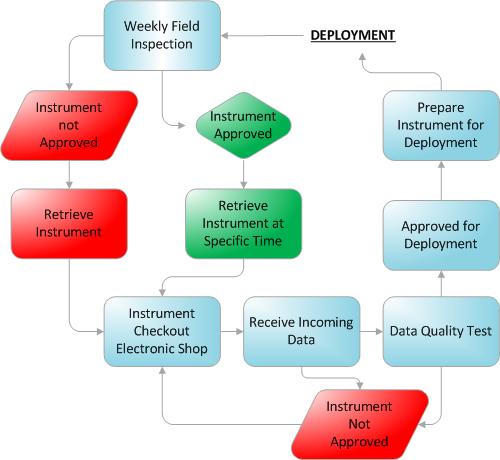Commitment to Quality
Environmental Sciences Limited is committed to a rigorous QA Program. ESL’s basic policies dictate professional ethics based upon concern for a safe and clean environment. We will provide only those services within our qualifications and with confidence that our QA Program will assure reliable performance of these services. Our commitment to provide services of the highest quality is embodied in our comprehensive QA Manual. The purpose of this Manual is to establish our QA policy.
Our laboratory is responsible for the operating procedures that implement the required QA elements. It is our policy to meet or exceed customer or regulatory specifications. Our laboratory fully complies with the QA policy and the established procedures contained in the Manual. The Manual also provides a basis for our vendors and clients to evaluate our QA Program and controls that ensure quality services. QA is a tool that allows management to utilize the expertise and experience of all personnel on the job.
Our program requires each worker to be aware of their work environment and to continually evaluate methods and processes to ensure that the best and correct operation is being performed. We encourage all employees to identify and suggest any improvement to the processes while performing an operation. Changes are coordinated with management who validates the changes and disseminates the information to all affected personnel. Management also, as required, changes procedures and provides additional training. Our QA Program requires that all personnel be qualified and trained on a continuing basis to maintain that qualification and to facilitate assimilation into Environmental Sciences Limited’s quality culture.
Quality Assurance and Quality Control (QA/QC) are important considerations where data collection activities are undertaken. QA/QC must be employed from the beginning of a project using a "design plan" as described below. This section defines our approach to QA/QC and shows the importance we place on quality performance. The accuracy and reliability of an environmental project is a function of the project’s quality program. ESL employs a strict, documented quality program throughout the entire project process. The project team is comprised of individuals who are trained and experienced in their respective tasks of sampling and/or analysis. During the sample collection process, samples are uniquely identified and maintain a single identification number throughout the testing and reporting process. The general quality assurance and quality control procedures employed at ESL for sampling entails:
- All field equipment, sampling apparatus and testing instruments are carefully maintained by trained field technicians to ensure that they are clean, well calibrated and in optimal working condition prior to sampling.
- All field activities are carefully documented so that sample results can be evaluated with respect to site conditions and sampling procedures.
- Samples are immediately placed on ice and transported back to the analytical laboratory to avoid sample contamination. Preservatives are added in accordance with the parameters to be tested.
- All aspects of sample handling, transportation and storage are coordinated with the laboratory to ensure that the analysis is performed in the required holding time.
Extensive knowledge of the condition to be tested in order to draw valid inferences from the data collected. This implies that the designer must be deeply knowledgeable regarding the subject to be tested. The designer must also be familiar with local and international guideline with regards to the subject under consideration including Standard Methods for the Examination of Water and Wastewater (2017) & ISO/IEC 17025:2017 General requirements for the competence of testing and calibration laboratories.
- • A logical structure must be utilized to collect data that pertains directly to the phenomenon being tested and to the questions being asked.
- Controls must be utilized in experimental design, especially where statistical relevance is of concern.
- Adequate sensitivity must be utilized for the results to be relevant.
- Execution of the experiment must be undertaken in a manner that eliminates the collection of faulty data.
QA/QC is conceived and centered on flow control methods that define specific areas of responsibility with proper checks and balances, providing for regular procedural control. Quality performance is worthy of achievement and quality results follow inherently. Quality Assurance ensures that data collected is representative, documented, and of known and acceptable quality. Quality Control is the system of technical activities that control performance so that specified standards are met. There are different approaches to achieve proper QC. These differences are primarily related to the tasks undertaken to provide solutions to specific problems. The Figure below shows a flow diagram for the field instrument operations quality control.

At Environmental Sciences Limited we use flow control methods for our marine surveys and acoustic sea floor mapping that define, the process for retrieval, data recovery, refurbishment, and redeployment of data collection instrumentation, utilizing a go-no-go principle of process control. An important key to our company's success has been our ability to assign experienced Project Managers to each project that we undertake. The Project Manager is supported (on larger projects) by task-specific managers. Additional technical support is provided by the team members. This open interaction in our organization has created a friendly atmosphere that has fostered the concept of quality performance. Project operational control within our organization requires persistent senior review and involvement in the execution and completion of tasks with ample attention to feed-back from "lessons learned."
As part of cost and schedule control, we provide our management team with three specific management tools:
Briefings: Held by the "Project Manager" to discuss project progress and to develop solutions to any problems encountered.
Status Meetings: Brief meetings held by the "Program Manager" where each task is orally summarized with respect to cost, schedule, and performance.
Accounting Review: Weekly review of the accounting of project activities, both by individual and specific tasks, where expenditures are compared to budget, and invoice status is reviewed.
